To my understanding, Spark works like this:
- For standard variables, the Driver sends them together with the lambda (or better, closure) to the executors for each task using them.
- For broadcast variables, the Driver sends them to the executors only once, the first time they are used.
Is there any advantage to use a broadcast variable instead of a standard variable when we know it is used only once, so there would be only one transfer even in case of a standard variable?
Example (Java):
public class SparkDriver {
public static void main(String[] args) {
String inputPath = args[0];
String outputPath = args[1];
Map<String,String> dictionary = new HashMap<>();
dictionary.put("J", "Java");
dictionary.put("S", "Spark");
SparkConf conf = new SparkConf()
.setAppName("Try BV")
.setMaster("local");
try (JavaSparkContext context = new JavaSparkContext(conf)) {
final Broadcast<Map<String,String>> dictionaryBroadcast = context.broadcast(dictionary);
context.textFile(inputPath)
.map(line -> { // just one transformation using BV
Map<String,String> d = dictionaryBroadcast.value();
String[] words = line.split(" ");
StringBuffer sb = new StringBuffer();
for (String w : words)
sb.append(d.get(w)).append(" ");
return sb.toString();
})
.saveAsTextFile(outputPath); // just one action!
}
}
}
